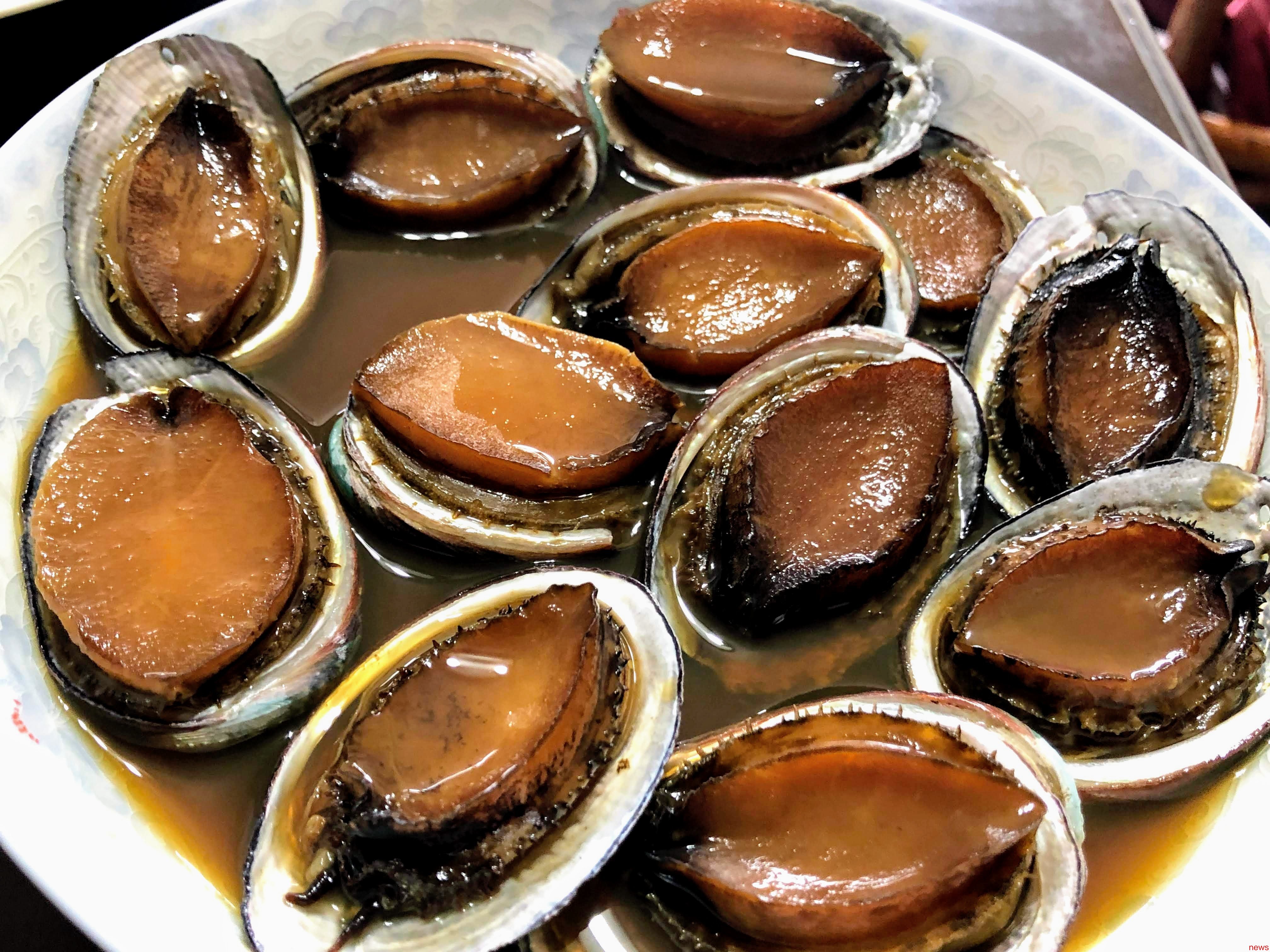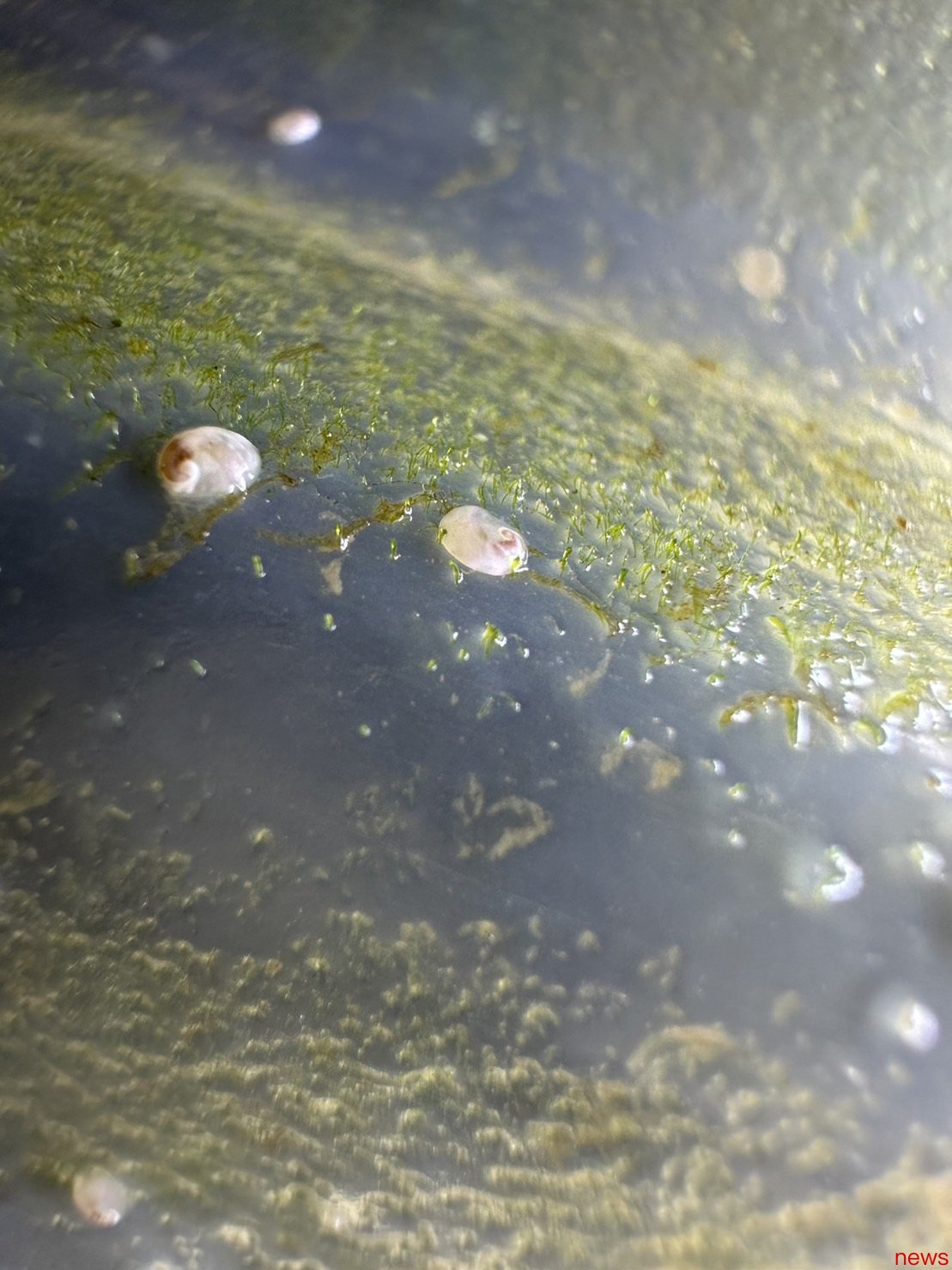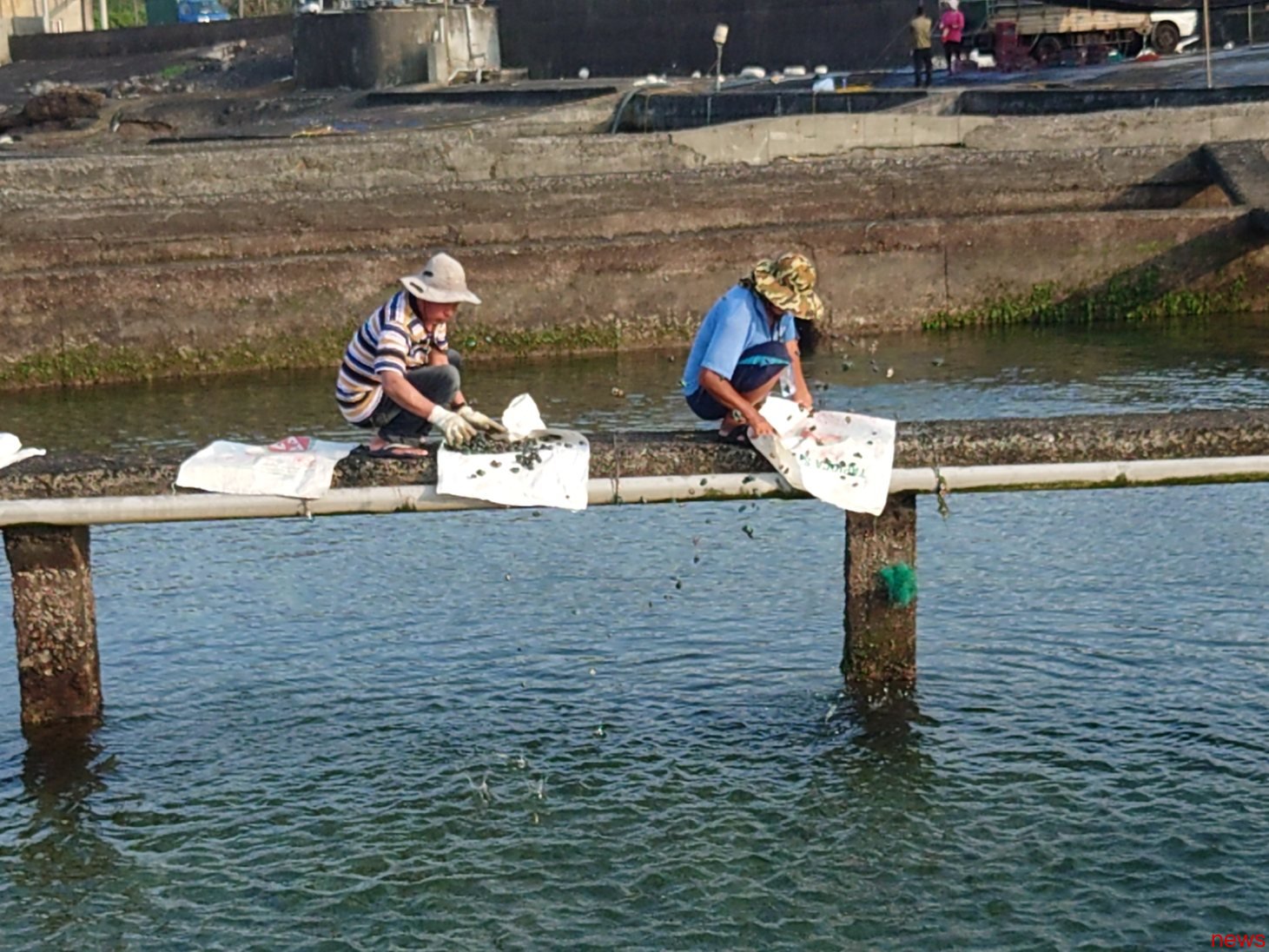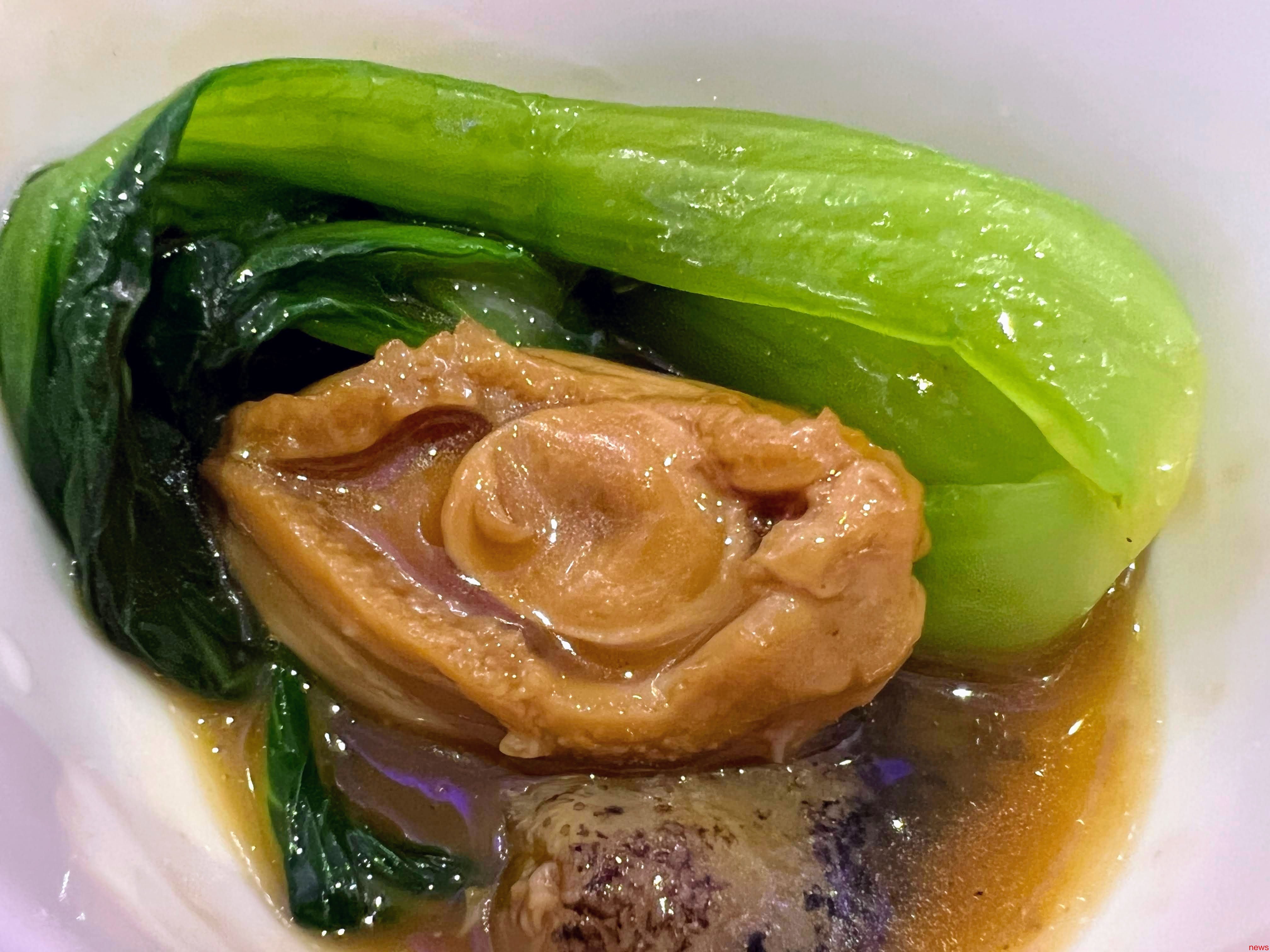The first encounter with Jiu Kong is a recollection at the wedding banquet of childhood. The plate was served with a cold plate with five flavors of sauce, and the taste of the blending taste of the sweet and sour taste became my first impression of...

The first encounter with Jiu Kong is a recollection at the wedding banquet of childhood. The plate was served with a cold plate with five flavors of sauce, and the taste of the blending taste of the sweet and sour taste became my first impression of the ocean. As the years pass, the nine holes on the dining table also transform into red, garlic, sesame oil simmering and other styles. Regardless of the cold and heat, they can always comfort the taste buds with their unique charm.

The nine-knee and other beige unearthed in Betsuka, Guangshan, Taipei complained about the close connection between the ancestors and the ocean thousands of years ago. Lin Jingren, who was born in the Banqiao Lin family in the late Qing Dynasty and early Republic of China, even praised the "Jiu Kong": "I have no time to ask about clams, and I will be blessed. I am surrounded by thousands of people, and I am hidden in my belly. I guarded the dangerous stones and sent to the giant ocean. Yanping is like you, and I am also appointed King Jiezhong." The taste of Jiu Kong is even more vigorous and fishy. He is even more successful than Yanping County Prince Zheng. He has rich slight and connotation. He is the "Jiu Zhongwang" in the shell animal. If nine Kongs know, they will be willing to be a confidant.
Artificial breeding of nine holes in Taiwan began in the 1970s, and its production reached a peak of 2,496 tons in 2001. It is suspected that a large number of seedlings died due to intra-native mating and disease infection, and the production volume decreased. It dropped to a historical low of 78 tons in 2012. Fortunately, with the efforts of students and breeders, the survival rate has returned to 70%. The current annual production is about 250. Tomorrow, the New Taipei City Government has launched the "Zhuangliao" brand, hoping to revive the business.

Nine holes are the same as the known snail family, but their body shape is smaller and there is a row of holes in the shell. Although it is called nine holes, the number of holes will change due to growth, usually 7 to 10, not necessarily 9.
The nine holes are mainly fresh food, but the fish in the traditional high-quality ingredients of Chinese dishes are mostly dry. Making seafood into dry goods is the right to preserve food. Vegetables have produced a complex set of lighting processes, transforming plain protein into fresh sweet amino acids such as sashimi acid, and the fish center also turns into semi-liquid "soft-liquid" which is incomparable and makes the souls of the gourmet.
The dried ginger is most famous for Japanese ginger, jipin, and roepi. It is divided into levels by how many pounds are there. For example, 10 pounds of fish are called 10 pounds. The smaller the "heads" means that the bigger the fish, the higher the grade and price. High-quality fish are becoming increasingly rare, and dried fish has even become a competition among celebrities and gourmets. For example, Cai Chenyang, the founder of the Hanshe Group, was a well-known collector during his lifetime.
{twenty three} {twenty four}
As early as the Han Dynasty 2,000 years ago, fish (known as fish and Shi Qinming in ancient times) had become a treasure on the dining table of the noble tribe. Coincidentally, Wang Mang and Cao Cao from Xihan and Donghan were both independent of fish. Before Wang Mang died, he was so worried that he could not eat food, and he did not forget to drink wine and eat fish. Therefore, Ban Gu wrote in "Han Book" that "the rash is unable to eat, drink wine and eat fish"; after Cao Cao's death, his son Cao Zhi mentioned in "The Form for Sacrifice to the Past Kings" that "the old king likes fish, and I used it to express it before, and obtained two hundred Zangbaqian pine in Xuzhou" and wanted to offer it on fish.
When Su Cheng of the Song Dynasty became the prefect of Dengzhou (now Shandong Furnace Station), he ate local fish and was unable to speak loudly, so he made a long poem about "Fishing Fishing", especially mentioning that "the two heroes are all involved in Han families, and their hobbies are as different as shoulder-to-shoulder." Dashen Wang Mang and Cao Cao both turned to the Han Dynasty, and their tastes are similar.
The Ming Xizong Zhu Youzhao liked the "Three Things" dish, and was made with stewed fish, sea geese, fish wings, etc. Students have found that after the middle of the Ming Dynasty, the imperial meal became increasingly extravagant, and the preferences of the second emperor from this Ming Dynasty were all available. Since the Ming and Qing Dynasties, sausage has become one of the protagonists of the feast. In addition to being expensive, the sarcastic pronunciation "sausage is a bag, and sausage is a bass", which has the auspicious meaning of "sausage is a bass".
In 1996, Taiwan's economy was at a high price. Lee Deng-wook, the first elected president, served as a national banquet with fish, fish wings, etc., which showed a prosperous and prosperous era. However, the following year, the following year, the fish was savored by the famous Hong Kong restaurant Yang Shengyi. Since then, politicians have paid more attention to food politics, and local and snacks have become more popular, creating a local image.
{twenty three}

For me, who was born in a well-off family, the plate of the cans with fish slices and cold plates in the past were the country's sorrows. The owner of the study even asked the president to turn the empty cart brand cans upside down in the center of the plate, showing off his spirit. The gourmet Liang Luqiu once wrote: "Some people like to eat fish. If you can open the can, use a fork to take out a piece and chew it bite by bit like eating corn on the cob!" It made people fascinated by covering the roll.
I have always been confused before, and fish are regarded as precious. Why do I use "like entering the fishery" to describe it as unpleasant? Why did historical records record that Qin Shihuang died on the way to patrol? In order to hide the news of death, the close ministers wanted to "load a stone of fish on the car to make it smelly"? It turned out that "fried fish" at that time meant stinky fish, and the fish we eat today crawled on the seabed with its belly, which was called "fried fish" in ancient times. It was probably because of its sound change in the Ming and Qing dynasties.
Yuan Mei, a talented man in the Qing Dynasty, once told the world that he should not blindly pursue famous ingredients, "I don't know that tofu tastes far and good, and that sea vegetables are not as good as bamboo shoots." Live a good life and taste every bite of food. Home-cooked dishes can also produce the flavor of ginger wings.